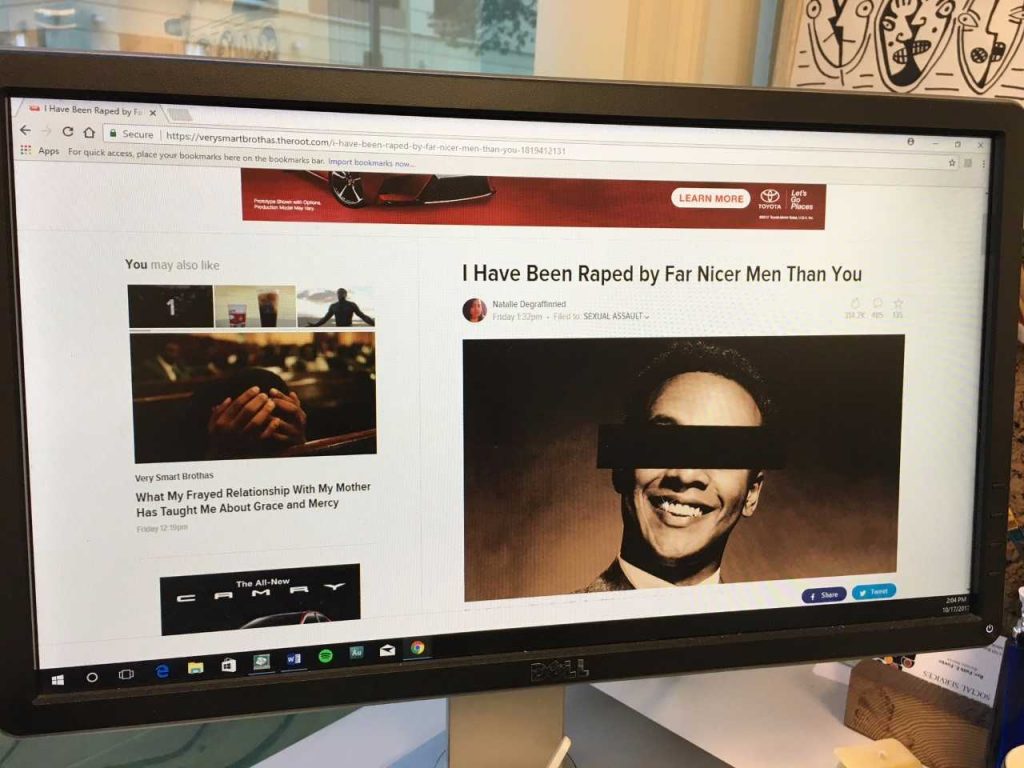Are We Seeing a Turning Point for Sexual Harassment, Assault Awareness?
“We often turn rape into a moral question… and it’s really a cultural one.”

Over the past couple weeks a horrifying picture has emerged surrounding Hollywood movie mogul Harvey Weinstein and the 20 or 30 years he spent sexually assaulting and harassing young actresses.
The grim story has given rise to some critical questions about an American culture that sometimes denies the extent of sexual violence in this country, and sometimes seeks to protect it and its predators.
Powerful actresses in Hollywood have come out to discuss their victimization, and an online campaign has caught hold as women post the words “Me Too” to indicate they’ve been violated in their lives.
So where do we go from here?
Harvey Weinstein was a public face of women’s rights and progressive thought, and yet he was a monster to women behind closed doors. That’s nothing new. According to Very Smart Brothas contributing editor Natalie Degraffinried, women must constantly size-up the men in their lives — from the men they pass on the street to the trusted friend and coworker — in a silent struggle a broad swath of the population doesn’t seem to acknowledge or understand.

Degraffinried writes in her recent column “I Have Been Raped By Far Nicer Men Than You”:
The “harmless” comments, the locker-room talk, the catcalling, the refusal to respect even the most minute boundaries. People like me must navigate a world of never-ending sexist dog whistles—but we are not the ones being signaled. Every comment allowed to pass, every rapist defended by friends and family and strangers, every man afraid of being falsely accused, creates a culture saying, “We have your back when you harm women.”
Everyone else is trained to hear this frequency as a matter of survival, to be on alert lest we fall prey to forces bigger and scarier than us: How far is the animal? But the real kicker is that the men who harm us aren’t mere animals; they’re often our friends, our co-workers, our family.
Degraffinried tells Detroit Today host Stephen Henderson that the onus is on men to speak up when they hear other men speaking or acting inappropriately toward women.
“There’s more that can be done to step in and say ‘No, hey, that’s not okay,'” says Degraffinried. She says a key problem in the national conversation about sexual violence is that it begins in the wrong place.
“We often turn rape into a moral question… and it’s really a cultural one. People feel comfortable harassing women because it’s normal.”

State Sen. Curtis Hertel Jr. (D-East Lansing) says more must be done to change how young men and boys view women and girls.
A new bill sponsored by Hertel in the state Senate would require schools to teach students about what it means to consent to sex. To not just think both parties want to have sex, but to confirm with an active conversation that both parties want to have sex with each other. It’s called “Affirmative Consent”.
“All we’re trying to do is prevent unwanted sex, and I don’t know how anyone in the state could be opposed to that,” says Hertel.
To hear from Degraffinreid and Sen. Hertel on Detroit Today, click on the audio player above.
